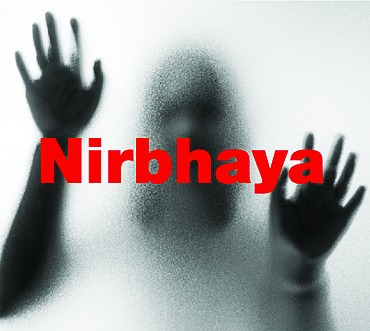
Now that it is election time, here and elsewhere, the little girl who was killed in Kashmir has been buried. But "Nirbhaya" will be dug up again, when the next tragedy strikes.
Every time the name "Nirbhaya" - the Fearless One - is invoked, I wonder why a girl brutalized like the eight-year-old, or like the original inspiration behind the name, the girl in the Delhi bus, has to be called "Nirbhaya". Who was there at the time of their brutalization to know what they felt? Did any of us see them? How can we presume to think that they felt no fear?
In all probability, all they felt was fear. A terror that would block everything else out. And pain. And darkness.
Then why on earth are these girls being called "Nirbhayas"? It is as if they are being asked to perform a role in their last terrible moments, when they were being killed, which would suit the public imagination. A role that turns them into heroes, courageous individuals staring in the face of the most grotesque death and triumphing over it. An eight-year-old, being mauled by man after man, not feeling fear? To transform the dead girls into these little saints, when they were not staking their lives for any cause at all, is almost as grotesque as the death they met.
It denies them the pain they felt in their living bodies. It amounts to saying that they were not entitled to feeling the pain in their living bodies.
Because it denies them their living bodies. A living body feels fear. "Nirbhaya" is an essence, pure soul, liberated from the gross body. This way the dead girls' bodies can be ignored.
The name is doubly ironic, doubly cruel, because in all probability the only thing they felt was fear, and also, our only knowledge of these girls is through their bodies and of them as bodies. The rape and murder killed them; the subsequent apotheosis into "Nirbhaya" dissolved their bodies. These are parallel acts.
The same logic had led to women who were being flung alive into their husbands' pyres being named "Satis". Who knew if the women loved their husbands or respected them? "Sati" also means the faithful one. Who knows how many of the women were faithful to their husbands in their life? Their name had nothing to do with them, but others who controlled their lives and their deaths by controlling their bodies.
"Satis" still have their charm. Padmavat was proof of that. Many women, too, liked the film. Death becomes her, if she is a good-looking queen. If not, if she is an ordinary girl, then we make death becoming.
Something awfully kinky is happening here. We, men and women, cannot engage with who these girls really were, what their bodies went through, without feeling uncomfortable. Their deaths were not stray acts; entire histories are behind them and, of course, we are uncomfortable in looking at our complicity. That is such a cliché, but so is renaming. Girls are so easily renamed; they were traditionally by their in-laws when they were married. Maid servants are too, especially when she shares her name with the lady of the house. And streets are being renamed with an abandon that we are very familiar with.
Naming and renaming are also acts of power.
I am afraid of the name "Nirbhaya".










